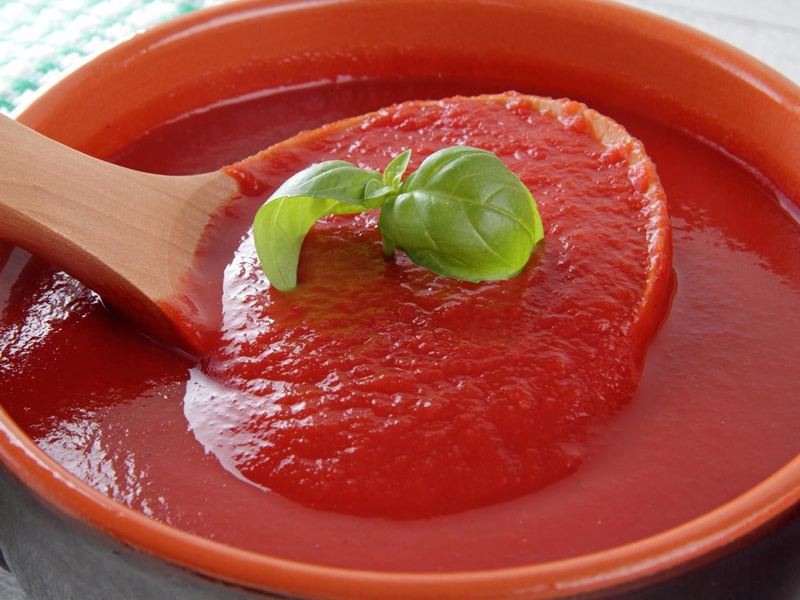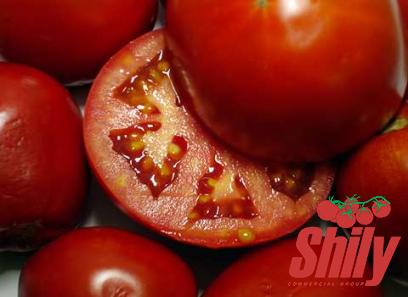Ketchup is a beloved condiment that adds flavor and tanginess to a wide variety of dishes. However, traditional ketchup recipes often contain high amounts of added sugars, making it a less healthy option for those looking to reduce their sugar intake.
With the growing awareness of the negative health effects of excessive sugar consumption, many consumers are seeking alternatives to conventional ketchup that provide the same taste and convenience but without the added sugars. This growing demand has led to the development of sugar-free or reduced-sugar ketchup options.
Sugar-free ketchup is typically made using natural sweeteners and flavor enhancers, allowing consumers to enjoy the familiar taste of ketchup without compromising on their dietary goals. These alternatives utilize ingredients such as stevia, xylitol, or erythritol, which provide sweetness without the calorie content or impact on blood sugar levels associated with traditional sugars.
The process of making sugar-free ketchup involves tweaking the traditional ketchup recipe to achieve the desired taste and texture while eliminating or reducing the amount of added sugars. This can be achieved by substituting natural sweeteners or using alternative ingredients to enhance the flavor profile.
One of the most popular natural sweeteners used in sugar-free ketchup is stevia. Stevia is derived from the leaves of the Stevia rebaudiana plant and is known for its intense sweetness without the calories or impact on blood sugar. By using stevia as a substitute for sugar, manufacturers can create ketchup that tastes similar to traditional varieties but without the added sugars.
Xylitol and erythritol are also commonly used as sugar substitutes in sugar-free ketchup. These sweeteners are sugar alcohols that provide sweetness without the same impact on blood sugar levels as traditional sugars. Xylitol and erythritol can be used in combination with other natural ingredients to create a ketchup that is both sugar-free and low in calories.
In addition to using alternative sweeteners, manufacturers may also make adjustments to the overall recipe of sugar-free ketchup. This can include reducing the amount of salt or using different spices and seasonings to enhance the flavor profile. Some companies also incorporate natural flavor enhancers, such as onion powder or garlic powder, to maintain the savory taste of traditional ketchup.

It’s important to note that while sugar-free ketchup offers a lower sugar content compared to traditional varieties, it may still contain some naturally occurring sugars from ingredients such as tomatoes. However, the overall sugar content is significantly reduced compared to conventional ketchup options.
The demand for sugar-free ketchup has been driven by various factors, including increasing health consciousness among consumers and the rise of dietary preferences such as low-carb or keto diets. While some individuals may have specific health concerns related to sugar consumption, others simply prefer to limit their overall sugar intake for general health and wellness purposes.
Sugar-free ketchup provides a convenient and flavorful alternative to those looking to reduce their sugar intake without sacrificing taste. Whether used as a dip, a topping, or an ingredient in various recipes, sugar-free ketchup allows individuals to enjoy the familiar tangy flavor of ketchup without the negative consequences of excessive sugar consumption.
Many major food manufacturers have recognized the demand for sugar-free ketchup and now offer their own versions of this condiment. These products can often be found in supermarkets or purchased online, providing consumers with a wide range of options to choose from.
In conclusion, sugar-free ketchup offers a healthier alternative to traditional ketchup, allowing consumers to enjoy the taste of this beloved condiment without the added sugars. With the use of natural sweeteners and flavor enhancers, sugar-free ketchup provides a satisfying and healthier option for individuals looking to reduce their sugar intake. As more people become conscious of their dietary choices, the demand for sugar-free ketchup is likely to continue to grow.Title: The Growing Market for Sugar-Free Ketchup: A Sweet Success in the Condiment Industry
Introduction:
The condiment industry is experiencing a significant shift as health-conscious consumers seek out alternatives to traditional ketchup loaded with added sugars. This shift has led to a rise in the popularity of sugar-free ketchup, which offers a healthier option without compromising on taste. In this article, we will explore the expanding market for sugar-free ketchup and examine the business opportunities it presents for manufacturers and retailers.
1. Consumer Demand and Health Consciousness:
The increasing awareness of the negative effects of excessive sugar consumption on health has fueled the demand for sugar-free alternatives across various food categories. With ketchup being a staple in many households, consumers are actively seeking healthier options that align with their dietary goals. The rising health consciousness among consumers has triggered a shift towards sugar-free ketchup options.

2. Targeting Specialty Diets:
Sugar-free ketchup not only caters to health-conscious individuals but also aligns with specific dietary preferences and restrictions. Low-carb or keto diets, for example, restrict carbohydrate intake, and traditional ketchup’s high sugar content makes it a less desirable condiment. By introducing sugar-free ketchup, manufacturers can tap into the growing market of individuals following specialty diets and enhance their product offerings to cater to diverse consumer needs.
3. Capitalizing on the Rise of Natural Sweeteners:
The development of sugar-free ketchup has been made possible by the availability and widespread acceptance of natural sweeteners. Stevia, xylitol, and erythritol are prime examples of natural sweeteners that have gained popularity due to their low-calorie content and minimal impact on blood sugar levels. Manufacturers can leverage these natural sweeteners to create sugar-free ketchup variants that provide a sweet taste without the need for artificial or refined sugars.
4. Recipe Reformulation and Taste Optimization:
Creating sugar-free ketchup requires careful recipe reformulation to achieve the desired taste, texture, and preservation. Manufacturers must strike a balance between natural sweetness and the savory profiles that characteristically define ketchup. By incorporating alternative ingredients, such as spices, seasonings, and natural flavor enhancers, they can ensure that sugar-free ketchup retains the familiar tanginess and depth of flavor associated with traditional varieties.
5. Marketing Strategies and Packaging Innovation:
To succeed in the competitive condiment market, effective marketing strategies and appealing packaging are crucial. Manufacturers should focus on educating consumers about the benefits of sugar-free ketchup and its compatibility with various dietary requirements. Engaging social media campaigns, recipe sharing, and collaborations with health and wellness influencers can help create awareness and build brand loyalty. Eye-catching packaging that clearly communicates the sugar-free aspect will attract health-conscious consumers seeking healthier alternatives.
6. Retail Placement and Market Penetration:

The placement of sugar-free ketchup on store shelves plays a vital role in its market penetration. Engaging with retailers to secure prominent placement in health food sections, specialty diet aisles, or organic sections can significantly boost sales. Collaborating with grocery store chains and participating in promotional activities, such as in-store demos or product bundling, can further increase exposure and drive sales.
7. Opportunities for Private Label Brands:
The rising demand for sugar-free ketchup presents an excellent opportunity for private label brands to enter the market. By creating their own sugar-free ketchup variants, retailers can offer an exclusive product that caters to the growing health-conscious consumer base. This allows retailers to differentiate themselves from competitors and establish a strong brand presence in the condiment category.
8. Expansion into Food Service and Bulk Orders:
The demand for sugar-free ketchup extends beyond the retail market. Restaurants, cafeterias, and food service providers are increasingly seeking healthier condiment options to cater to health-conscious diners. Manufacturers can explore partnerships with food service establishments to supply sugar-free ketchup in bulk, providing an additional revenue stream and increasing market reach.
9. Innovating Beyond Traditional Ketchup:
To further differentiate themselves, manufacturers can explore innovative variations of sugar-free ketchup. This can include the development of flavor-infused options, such as spicy, smoky, or herb-infused ketchup, to cater to diverse consumer preferences. Expanding the product line to include organic or natural ingredients can also appeal to consumers seeking an even cleaner, more sustainable condiment option.
10. Competitive Landscape and Collaboration Opportunities:
As the market for sugar-free ketchup grows, competition is also intensifying. To strengthen their position, manufacturers may consider collaborations or partnerships with health food brands, nutritionists, or culinary experts to develop unique product offerings. Collaborations can create synergies, leveraging the expertise and reach of both parties to penetrate new markets and expand consumer base.

Conclusion:
The market for sugar-free ketchup is on an upward trajectory, driven by the increased health consciousness and demand for healthier alternatives. Manufacturers and retailers who recognize and capitalize on this growing trend have an opportunity to build brand loyalty, gain market share, and cater to an expanding consumer base seeking nutritious condiment options. By focusing on taste optimization, marketing strategies, and innovative product development, businesses can tap into the sweet success of sugar-free ketchup and carve a niche in the competitive condiment industry.









